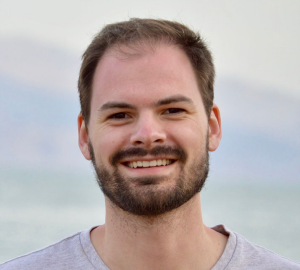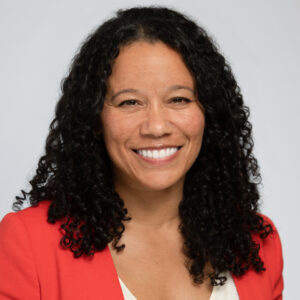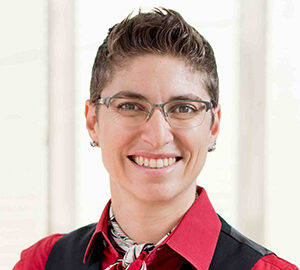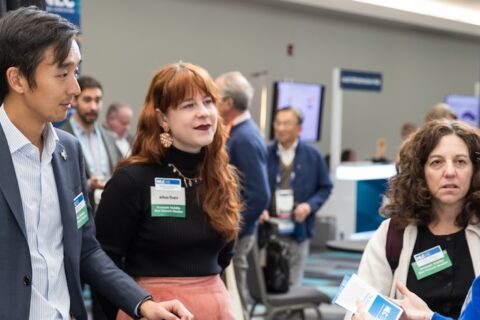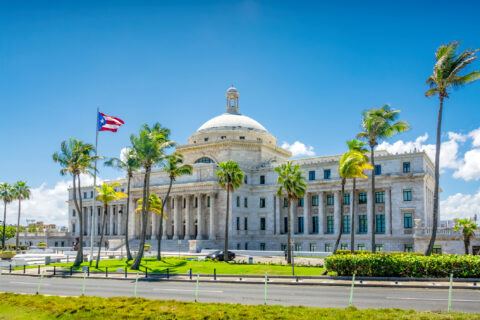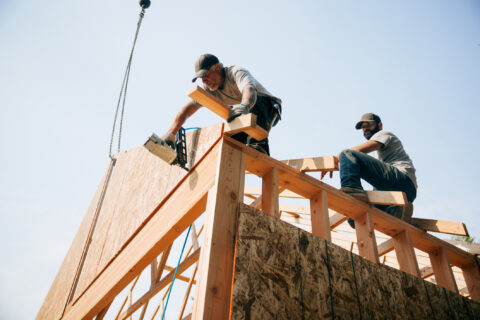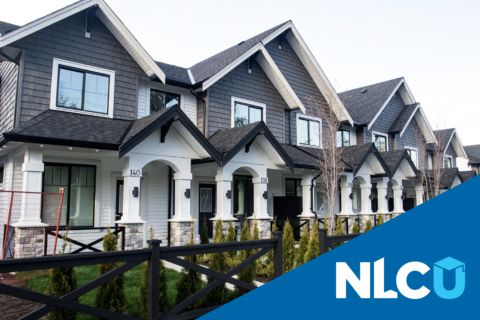
At the 2021 City Summit, the National League of Cities (NLC) welcomed the latest participants in the City Innovation Ecosystems (CIE) program, which provides cities with resources and support to help entrepreneurs of color achieve greater economic mobility. The CIE program, made possible in partnership with and supported by the Ewing Marion Kauffman Foundation, helps cities adopt policies, programs and practices to give underrepresented entrepreneurs more opportunities for economic advancement.
Now in its third year, this program has grown to include more than 175 cities, 200 local partners and $100 million in committed resources. Participants select a commitment based on one of the four pillars of America’s New Business Plan, which ensures that “anyone with an idea has access to the opportunity, funding, knowledge and support to turn it into a reality.”
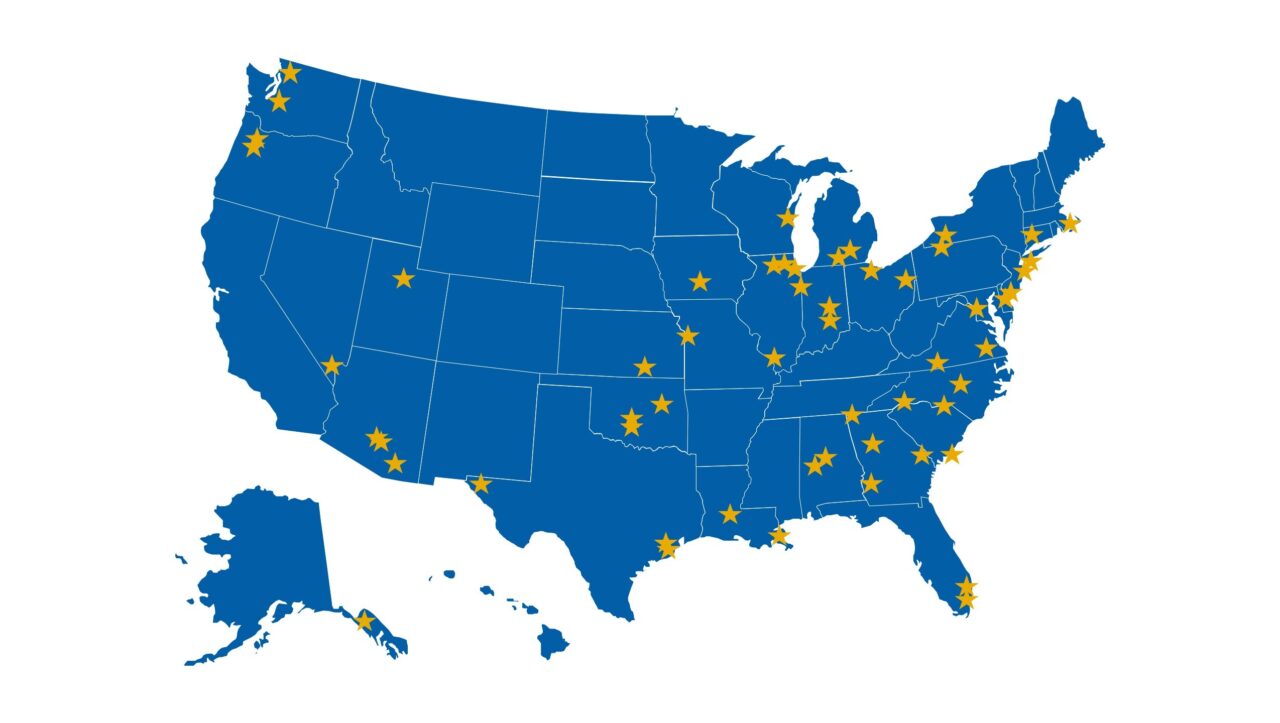
This year 59 cities from across the country made 77 commitments to implement year-long projects that will help foster economic growth in their communities:
- Increasing supplier diversity through equitable procurement strategies at anchor institutions such as universities, hospitals, corporations and utility companies (City of Tuscaloosa, AL; City of Tucson, AZ; City of Indianapolis, IN; City of Alexandria, LA; City of New Orleans, LA; City of Asheville, NC; City of Jersey City, NJ; City of Richmond, VA; City of Bellingham, WA)
- Reducing barriers to earning city contracts for Black, Indigenous and people of color (BIPOC)- and women-owned businesses (City of Phoenix, AZ; City of Des Moines, IA; Unified Government of Wyandotte County and Kansas City, KS; City of Boston, MA; City of Easthampton, MA; City of Lansing, MI; City of St. Louis, MO)
- Rethinking how to solicit tech solutions and attract potential partnerships with startups and tech-based entrepreneurs (Village of Bolingbrook, IL; City of Kansas City, MO; City of New York, NY; City of Philadelphia, PA; New York City, NY; City of Pearland, TX; City of Green Bay, WI)
- Diversifying economic development boards and commissions (City of Wichita, KS; City of Kansas City, MO; City of Rochester, NY; City of Oklahoma City, MO; City of Richmond, VA)
- Helping entrepreneurs formalize their businesses so they can access more resources (City of Washington, DC; City of Lauderhill, FL; City of Freeport, IL; City of New Orleans, LA; City of Akron, OH; City of Toledo, OH; City of Roanoke, VA)
- Lowering barriers for Hispanic/Latinx entrepreneurs to start and grow a business (City of Belvidere, IL; City of Kankakee, IL; City of Kalamazoo, MI; City of Charlotte, NC; City of Durham, NC; City of Rochester, NY)
- Equipping aspiring entrepreneurs with the skills they need to start a business (City and Borough of Juneau, AK; City of Henderson, NV; City of Rochester, NY; City of Norman, OK; City of Sherwood, OR; City of Millcreek, UT)
- Cataloging local resources available to entrepreneurs (City of Birmingham, AL; City of Kokomo, IN; City of Jamestown, NY; City of Tulsa, OK; City of Monmouth, OR; City of Charleston, SC; City of Chattanooga, TN; City of Federal Way, WA)
- Building a microlending platform to serve entrepreneurs without access to traditional finance (City of Wilmington, DE; City of Augusta, GA; City of Richmond, VA)
- Developing a strategy for engaging with Community Development Financial Institutions (City of Phoenix, AZ; City of Miami, FL; City of New Orleans, LA; City of Rochester, NY; City of Philadelphia, PA; City of El Paso, TX; City of Richmond, VA; City of Bellingham, WA)
- Helping small businesses raise growth capital from community-based investors in places where traditional venture capital is absent (City of Washington, DC; City of Wilmington, DE; City of Buffalo, NY; City of Houston, TX)
- Helping innovative Black-owned firms raise venture capital (City of Birmingham, AL; City of Tempe, AZ; City of Atlanta, GA; City of St. Louis, MO; City of Rochester, NY)
These cities will not undertake these projects alone. They will share their successes and challenges with other participants that have committed to the same goals, and they will have access to technical experts to help implement their projects and provide valuable feedback.
We know a more inclusive future will take time, and these year-long projects are just one piece of each community’s inclusive development strategy. Yet by joining the CIE program, these cities have signaled the importance of taking decisive action in the near term to improve economic opportunity for underserved communities. We look forward to seeing what they do next.
Learn more.
Learn more about NLC’s City Innovation Ecosystem (CIE) program, and the cities that are committing to innovation and entrepreneurship.

